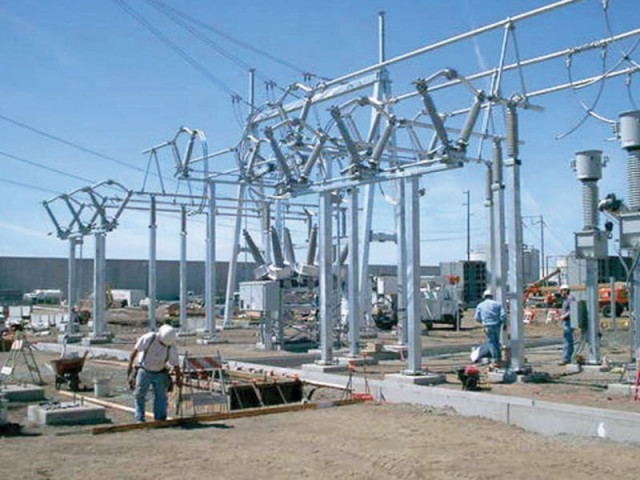Never again: Power policy of 1994 a disaster for economy. says ECC
Committee opposes 18% return on investment in new transmission lines.

In a bid to formulate a policy for attracting private sector investment in transmission lines, the ministry had constituted a committee under the chairmanship of water and power division secretary. PHOTO: FILE
The Pakistan Muslim League-Nawaz (PML-N) government has dubbed the independent power plants (IPPs) set up during the Pakistan Peoples Party (PPP) government a disaster for the economy and has decided not to follow the model in awarding contracts to private investors for laying transmission lines.
Under the 1994 power policy, the PPP government had promised 18% rate of return to the IPPs, which was fiercely opposed by the PML-N at that time. Now, when the party is in power, it has again slammed the policy, which was echoed in a meeting of the Economic Coordination Committee (ECC) on May 16.
According to sources, the ECC – the apex economic decision-making body – suggested that the proposed 18% rate of return on equity for power transmission line projects should not be part of the draft policy, which had been prepared while keeping in view the IPPs’ model that proved to be a disaster for the country’s economy.
The ECC directed the Ministry of Water and Power to revise the draft policy in consultation with key stakeholders including the Law, Justice and Human Rights Division.
“The government will not offer a guaranteed rate of return on investment in the proposed project,” the ECC said.
Committee members reviewed the policy’s summary, prepared by the water and power ministry in an effort to attract private sector investment in laying transmission lines, and directed the ministry to come up with a fresh summary in consultation with the stakeholders within two weeks.
The members said the government had planned large-scale capacity addition to the country’s power production in the next few years and that would necessitate an extension in the transmission network.
They pointed out that planned power generation projects with a combined capacity of 6,600 megawatts at the Gadani Power Park would also require transmission lines to be laid from Gadani to the load centre in the country’s north.
Owing to the encouraging response of the private sector and constraints on public sector resources, it was considered necessary to invite the private sector to pump investment into new transmission lines, the water and power ministry stressed.
It told the ECC that in a bid to formulate a policy for attracting private sector investment in transmission lines, the ministry had constituted a committee under the chairmanship of water and power division secretary. It included members from the federal government institutions, provinces and the private sector.
After detailed deliberations, the committee finalised the recommendations and drafted a policy framework for the private sector transmission line projects. The policy was based on the build, own, operate and transfer (BOOT) model and the National Transmission and Dispatch Company would provide the legal right of way.
Apart from this, the National Electric Power Regulatory Authority (Nepra) would announce upfront tariff.
Published in The Express Tribune, May 29th, 2014.
Like Business on Facebook, follow @TribuneBiz on Twitter to stay informed and join in the conversation.



















COMMENTS
Comments are moderated and generally will be posted if they are on-topic and not abusive.
For more information, please see our Comments FAQ